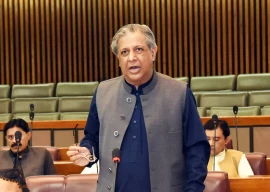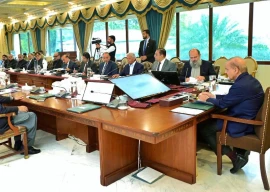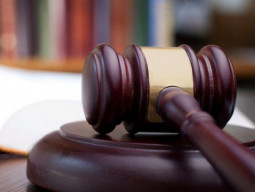
MANILA: The Philippines may ask the United States to deploy spy planes over the South China Sea to help monitor the disputed waters, President Benigno Aquino told Reuters on Monday, a move that could worsen tensions with its giant neighbor China.
The two countries only recently stepped back from a months-long standoff at the Scarborough Shoal, a horseshoe shaped reef near the Philippines in waters they both claim - the latest round of naval brinkmanship over the resource-rich sea.
The United States has stressed it is neutral in the long-running maritime dispute, despite offering to help boost the Philippines' decrepit military forces. China has warned that "external forces" should not get involved.
"We might be requesting overflights on that," Aquino told Reuters in an interview, referring to US P3C Orion spy planes. "We don't have aircraft with those capabilities."
There was no immediate comment from Washington.
Last month, Aquino pulled out a lightly armed coast guard ship and a fisheries boat due to bad weather around the Scarborough Shoal, a group of rock formations about 140 miles west of the main Philippine island of Luzon.
The South China Sea is potentially the biggest military flashpoint in Asia, and tensions have risen since the United States adopted a policy last year to reinforce its influence in the region.
At stake is control over what are believed to be significant reserves of oil and gas. Estimates for proven and undiscovered oil reserves in the entire sea range from 28 billion to as high as 213 billion barrels of oil, the US Energy Information Administration said in a March 2008 report.
China, the Philippines, Taiwan, Brunei, Vietnam and Malaysia have competing claims on the sea, but China's claims encompass almost all its waters.
China said last week it had begun "combat-ready" patrols in waters it said were under its control in the South China Sea, after saying it "vehemently opposed" a Vietnamese law asserting sovereignty over the Paracel and Spratly islands.
"We hope the Philippines will no longer issue information that provokes public opinion and avoid complicating the situation," Chinese Foreign Ministry spokesman Liu Weimin told reporters on Monday, responding to the Philippine military's assertion that it could return to the Scarborough Shoal at any time.
"We have a lot of needs"
Aquino, whose presidency has seen a cooling of ties with China over the sea dispute, said he had not decided whether to send Philippine ships back to the disputed shoal. He said he had called a cabinet meeting on Thursday to discuss the issue and overall relations with China.
"We'll discuss the whole issue of the relationship with China and I would like to get the advice of my advisors," the 52-year-old president told Reuters in a wood-paneled reception room in the Malacanang presidential palace.
Manila has been looking to its old ally Washington for ships, aircraft, surveillance equipment and other hardware as the United States refocuses its military attention on Asia. Manila has offered Washington greater access to airfields and its military facilities in exchange for more equipment and frequent training.
"The Philippines has demonstrated time and again its interest to preserve the peace and the de-escalation of the situation," Aquino said. "But we don't exist in a vacuum. We would want to see China reciprocate all of these moves that have been done as far as de-escalating the tensions."
The maritime dispute was high on the agenda when Aquino met US President Barack Obama in Washington last month. In August last year, the US Pacific Command made an initial offer to deploy the P3C Orion spy planes to the Philippines and help monitor disputed areas in the South China Sea after China increased its presence and activities near Reed Bank, part of the western Philippines Palawan island group.
The Pentagon offered to share real-time surveillance data with the Philippines while seeking wider access to airfields in its former colony in Southeast Asia.
Despite its professed neutrality over the South China Sea dispute, the US military "pivot" back to Asia is widely seen as a response to China's growing military capabilities. Its shift back to the region may be encouraging smaller nations such as Vietnam and the Philippines to take a bolder stance over the sea dispute, analysts say.
"We have a lot of needs," said Aquino, the son of democracy icon and former president Corazon Aquino.
"For instance the coast watch system - we have 36,000 km (22,000 miles) of coastline. We don't have radar coverage for all of this."
Aquino also said he would not object to an increased "rotational tempo" for US military forces in the country to help train their Filipino counterparts.
Aquino said China should not be alarmed by Philippine efforts to improve its monitoring capability.
"Does the Philippines have the capacity to become an aggressor?" he asked. "By any stretch of the imagination, the Philippines does not. So why should it upset a superpower if we're all reasonable?"
COMMENTS (1)
Comments are moderated and generally will be posted if they are on-topic and not abusive.
For more information, please see our Comments FAQ


































































The Internatinal Court of Justice in the Hague should view the case. Without a legal settlement China's multiple disputes with its neighbours over the South China Sea will hang like a Sword of Damocles over the already tensed relations between these countries.